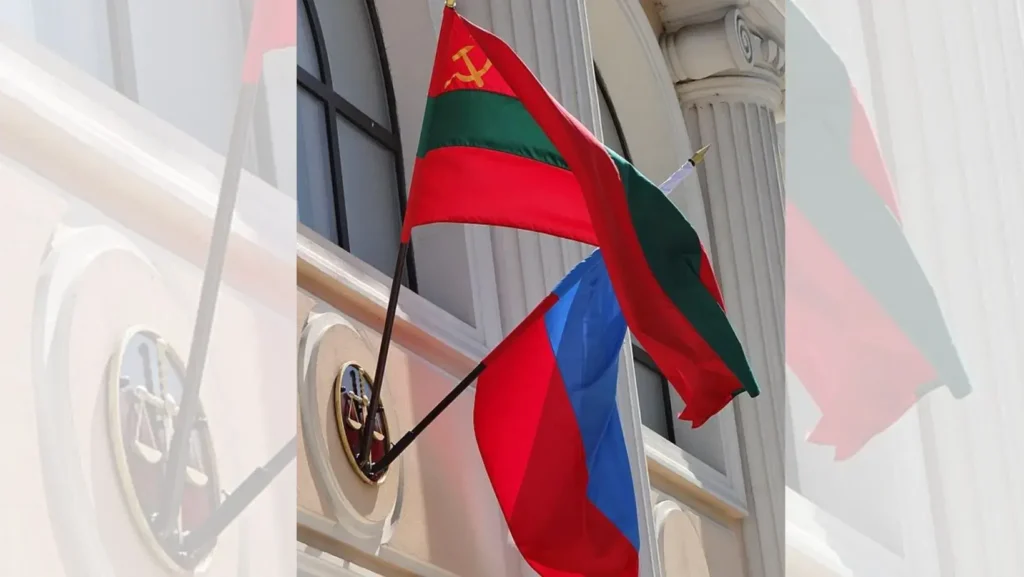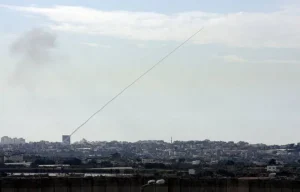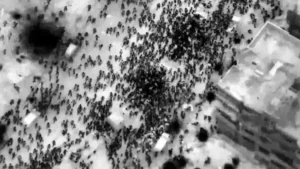Legislators from the region of Transnistria, internationally recognized as a part of Moldova, took advantage of a meeting in Tiraspol to ask the Russian Duma to “implement measures to defend the territory amid growing pressure from Moldova”.

Adam Jones
The United States reiterated this Wednesday its support for the sovereignty of Moldova after a recent statement by the pro-Russian separatists of Transnistria, in which they expressed their willingness to be under the protection of Moscow.
Friction between the two territories dates back to the early 1990s, when a brief war in 1992 ended with pro-Russian forces in Transnistria declaring a separatist state there, which was never recognized by the international community. Even in 2006, a referendum held in the area showed that more than 95% of voters wanted to join Russia, but both the United States State Department and other Western nations considered it a “provocative” consultation that “cannot be taken at face value.” Serious”.
Despite not moving forward with formal annexation, the region adopted its own currency and flag under the name of the Pridnestrovian Moldavian Republic and the Kremlin deployed some 1,500 soldiers there – supposed peacekeepers – to guard the arsenals of Soviet weapons and ammunition.
However, this Wednesday, legislators from the region took advantage of a meeting in Tiraspol to ask the Russian Duma to “implement measures to defend the territory amid growing pressure from Moldova, given that more than 220,000 Russian citizens reside there.” In their statement, the congressmen referred to the new customs tariffs that Moldova imposed on imports and exports from Transnistria, as part of its path to join the European Union bloc.
This measure, in force since January 1 of this year, generated unrest in the border region with Ukraine since its authorities assure that it harms local residents and businesses.
Alexander Korshunov, president of the Supreme Council of Transnistria, assured that Moldova is “taking advantage of the geopolitical situation” and using the economy “as a tool of pressure and blackmail.”
“Moldova’s policy and objectives towards Transnistria have not changed in recent decades: destroy our economic potential, create unbearable living conditions for our citizens and achieve the dismantling of our statehood,” he continued.
That is why, in an attempt to reveal themselves to the pro-Western government, the legislators raised their voices against Moldova’s “violations of rights and freedoms” on its people.
Russia responded that it is a “priority” for the Kremlin to provide protection to these citizens. “Protecting the interests of the residents of Transnistria, our compatriots, is one of our priorities,” they said from the Ministry of Foreign Affairs.
That is why the spokesman for the State Department in Washington, Matthew Miller, confirmed that his country “strongly supports the sovereignty and territorial integrity of Moldova within its recognized borders” and added that “given the growing aggressive and destabilizing role of Russia In Europe, we are closely monitoring their actions in Transnistria and on the border.”
Likewise, in an attempt to de-escalate the situation, he called on the parties to “work together” to “identify solutions to the concerns of communities on both sides of the Dniester River.”
For his part, the Prime Minister of Poland, Donald Tusk, assured that “the threat of Russian intervention or, at least, a provocation, is permanent” and considered that the tensions in the country are “dangerous” for the entire society. region “and not only for Ukraine.”
Since the start of the war in Kiev, Transnistria became a focus of speculation, with the West fearing a Russian offensive from that front against the city of Odessa, and the separatists warning of an alleged plan to attack their territory and attack their leaders. .
The Ukrainian Ministry of Foreign Affairs was quick to speak out after the recent events and advocated for a “peaceful solution to the economic, social and humanitarian aspects” that concern the parties, “without destructive external interference,” in reference to the crisis that can unleash Russia’s influence on this issue.







